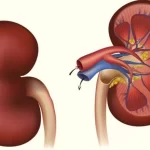Importance of breastfeeding
Breastfeeding has a variety of benefits. These benefits have lasting effects that promote better health throughout life for the breastfed baby and its mother. Human milk is a complex, living substance that has been shown to fight many diseases and promote health. Giving elements are present. It is a complete child support system that provides both nutrition and protection. The mother’s immune system makes these antibodies and they are constantly adapting.
When a baby or mother is exposed to a new germ, the mother’s immune cells are activated and produce antibodies to combat that particular germ. These antibodies and disease-fighting cells quickly enter the milk. and the mother can feed the baby. Hundreds of human milk components nourish both the infant and the young child. On the other hand, infant formula provides only nutrition: it has no benefit to the infant beyond basic nutrition. Women also benefit from breastfeeding. Some benefits are long-term and remain with mothers for years.
Breastfeeding Benefits to baby
- Breastfed babies are less prone to diseases such as colds, respiratory infections, ear infections, and influenza.
- Breastfeeding is good for digestion. Babies who are breastfed are sixteen times healthier than other babies. Breast feeding can protect against Crohn’s disease, irritable bowel syndrome, colitis, and celiac disease.
- Breastfeeding for at least three months reduces the risk of diabetes (Type I) in babies by 30%. It also reduces the risk of late-onset or exacerbation of type II diabetes.
- Research suggests that breastfed babies are less likely to develop high blood pressure, high cholesterol, and heart disease as they grow up.
- Breastfed babies have fewer symptoms of cancer from infancy and are less likely to develop breast and ovarian cancer as they grow up.
- Breastfed babies get sick less often, so there will be fewer visits to the doctor and hospital, and less money will be spent on antibiotics and other medicines.
- Breastfeeding for more than four months reduces the infant’s risk of hospitalization for respiratory infections by 72%.
- Even when a breastfed baby becomes ill, the illness is usually less severe and lasts much less.
- Breastfed babies are less prone to allergies, asthma, eczema, and skin rashes.
- Breast milk has high-fat levels which are essential for the brain and nervous system.
- Breastfed babies have higher IQs, better developed neurological systems, and sharper vision.
- Breastfeeding gives all possible help to the development of the muscles of the mouth and face of the baby.
Breastfeeding Benefits to mothers
- Increases attachment to breastfeeding. Every time a mother nurses her baby, she releases the hormone oxytocin. This hormone not only causes a mother to release her milk but also increases attachment to the baby. This is called the “mothering” hormone.
- Oxytocin provides one of the other benefits of breastfeeding: Protects women’s mental health, Oxytocin regulates stress. The effects of reduced stress during breastfeeding are long-lasting.
- Breastfeeding reduces the risk of breast and ovarian cancer. The risk of breast cancer decreases by 4.3% each year a woman breastfeeds, and the risk in pregnancy decreases from 7% to 60% each year. The cycle of pregnancy, lactation, and weaning can be important for breast health. is.
- Breastfeeding reduces the risk of osteoporosis. New mothers experience a lack of calcium in their bones during the initial months of breast feeding.
- Breastfeeding helps mothers lose weight. About 500 calories are needed in a day to make milk for a baby.
- Women who breastfeed have a lower risk of developing metabolic syndrome, which is characterized by diabetes, high blood pressure, high cholesterol, and heart disease.
- Breastfeeding in the first six months can delay the return of ovulation and reduce the chances of conception.
- Breastfeeding mothers’ sleep improved. Research suggests that lactating women fall asleep more quickly and have a sound sleep.
- Breastfeeding also saves time, is completely safe and readily available.
- Breastfeeding mothers have less anxiety, stress, and depression because their babies are less likely to get sick.
Conclusion
Increasing breastfeeding would reduce healthcare costs worldwide. The US could save £13 billion on medical costs each year if 90% of women breastfed their infants exclusively for the first six months. Based on the low cost of care.






